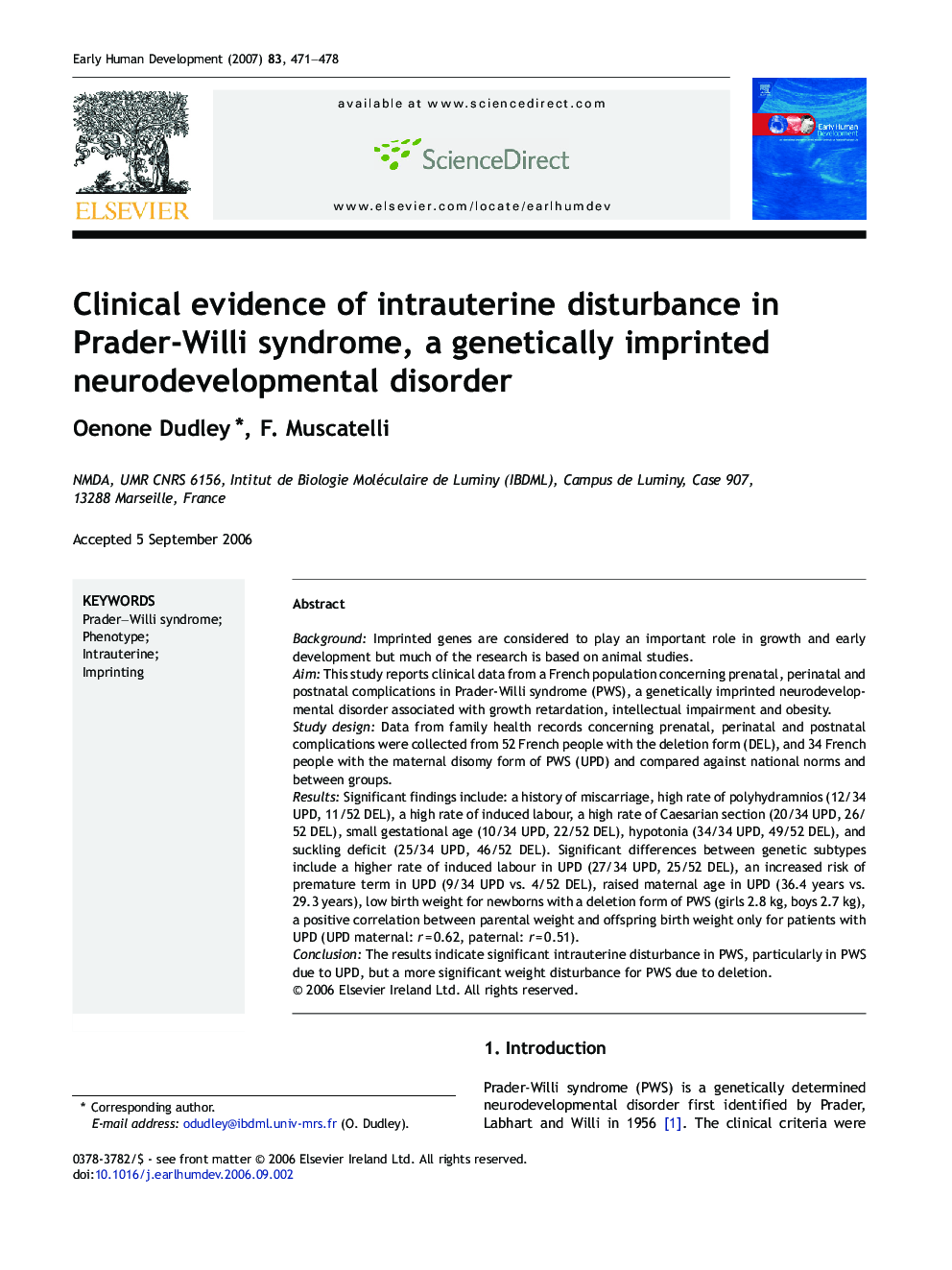| Article ID | Journal | Published Year | Pages | File Type |
|---|---|---|---|---|
| 3918321 | Early Human Development | 2007 | 8 Pages |
BackgroundImprinted genes are considered to play an important role in growth and early development but much of the research is based on animal studies.AimThis study reports clinical data from a French population concerning prenatal, perinatal and postnatal complications in Prader-Willi syndrome (PWS), a genetically imprinted neurodevelopmental disorder associated with growth retardation, intellectual impairment and obesity.Study designData from family health records concerning prenatal, perinatal and postnatal complications were collected from 52 French people with the deletion form (DEL), and 34 French people with the maternal disomy form of PWS (UPD) and compared against national norms and between groups.ResultsSignificant findings include: a history of miscarriage, high rate of polyhydramnios (12/34 UPD, 11/52 DEL), a high rate of induced labour, a high rate of Caesarian section (20/34 UPD, 26/52 DEL), small gestational age (10/34 UPD, 22/52 DEL), hypotonia (34/34 UPD, 49/52 DEL), and suckling deficit (25/34 UPD, 46/52 DEL). Significant differences between genetic subtypes include a higher rate of induced labour in UPD (27/34 UPD, 25/52 DEL), an increased risk of premature term in UPD (9/34 UPD vs. 4/52 DEL), raised maternal age in UPD (36.4 years vs. 29.3 years), low birth weight for newborns with a deletion form of PWS (girls 2.8 kg, boys 2.7 kg), a positive correlation between parental weight and offspring birth weight only for patients with UPD (UPD maternal: r = 0.62, paternal: r = 0.51).ConclusionThe results indicate significant intrauterine disturbance in PWS, particularly in PWS due to UPD, but a more significant weight disturbance for PWS due to deletion.
